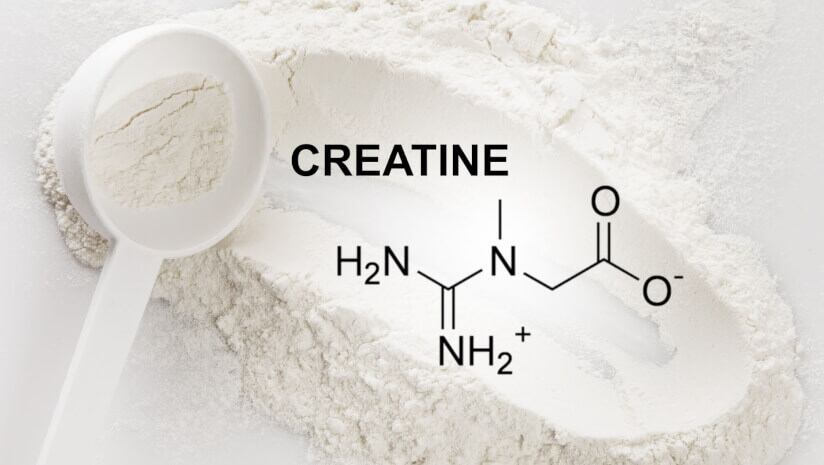A growing body of research is examining the effects of their bioactive compounds—from caffeine and catechins to polyphenols and theanine—and how they may contribute to supporting healthier, longer lives.
Researchers are also finding that benefits, such as reduced frailty, improved cognitive function or modulated microbiomes, depend not only on the compounds themselves but on how, when and by whom these beverages are consumed. Factors such as time of day, a person’s genetic makeup and even the type of roast or brewing method can all influence outcomes.
Below a look back at some of the more recent research brewing around coffee and tea compounds.
Higher coffee consumption linked to lower risk of frailty in later life
Drinking at least four cups of coffee a day may help people age better by reducing their risk of frailty, according to a seven-year study.
The findings, published in the European Journal of Nutrition, stem from the Longitudinal Aging Study Amsterdam (LASA), which analyzed data from 1,161 community-dwelling adults aged 55 and older and evaluated both current and retrospective coffee consumption.
“The health benefits associated with coffee consumption are often attributed to the presence of various bioactive compounds in coffee, such as caffeine and polyphenols, which have antioxidant and anti-inflammatory properties,” wrote the researchers from the Amsterdam Public Health Research Institute. “Considering the involvement of inflammation and neuroendocrine dysregulation in the pathophysiology of frailty, coffee consumption may also be linked to a lower risk of frailty.”
The study was funded by the Institute for Scientific Information on Coffee (ISIC), a nonprofit organization supported by major coffee companies including illycaffè, JDE Peet’s, Lavazza, Paulig and Tchibo.
Green tea may protect the aging brain
A new study links higher green tea consumption to fewer cerebral white matter lesions, suggesting that it could contribute to preventing cognitive decline in some populations.
Writing in the journal npj Science in Food, a team of Japanese researchers investigated the associations between green tea or coffee intake with various measures associated with structural integrity of the brain among over 8,000 community-dwelling adults.
“Given that cerebral white matter lesions are closely related to vascular dementia and AD, our findings indicate that drinking green tea, especially three or more glasses per day, may help prevent dementia,” they reported. “Nevertheless, further prospective longitudinal studies and basic research are needed to validate our results.”
Timing matters: Morning coffee drinkers less likely to die?
The time of day people drink their coffee could be an important factor contributing to increased heart health and longevity, according to a recent study.
Published in the European Heart Journal, the research suggests that morning coffee drinkers may have a lower risk of cardiovascular disease and overall mortality than those who drink coffee later in the day or not at all.
“This is the first study testing coffee drinking timing patterns and health outcomes,” Professor Lu Qi, who led the study at Tulane University, said in a statement. “Our findings indicate that it’s not just whether you drink coffee or how much you drink but the time of day when you drink coffee that’s important. We don’t typically give advice about timing in our dietary guidance, but perhaps we should be thinking about this in the future.”
Coffee drinkers have distinct gut microbiomes
Researchers have discovered a metabolic link between coffee and a specific bacterium in the gut that may help to explain the health benefits associated with one of the world’s most popular beverages.
Their findings, published in the journal Nature Microbiology, examined the relationship between coffee intake and the gut microbiome through a multi-cohort, multi-omic analysis of U.S. and UK populations with detailed dietary information from over 22,800 participants.
“Our study provides insights into how the gut microbiome potentially mediates the chemistry—and thus health benefits—of coffee,” wrote a research team led by scientists from the University of Trento in Italy and the Harvard T.H. Chan School of Public Health. “Up to 115 SGBs [microbiome species-level genome bins] responded positively to coffee intake, highlighting the impact that a single daily food item can have on the human gut microbiome.”
At the intersection of genetics, caffeine and cognition
Variations in people’s genetic makeup could explain the variations in their cognitive response to habitual caffeine consumption.
According to a paper published in the Journal of Psychopharmacology, research on caffeine and cognitive performance remains controversial, and this in part could be due to the CYP1A2, AHR and ADORA2A genes.
“As nutrigenetics science has advanced, some of the variability in study results has been attributed to common genetic variations, specifically single nucleotide polymorphisms (SNPs), which are associated with caffeine metabolism and response,” wrote researchers from the Faculty of Sport, Allied Health and Performance Science at St Mary’s University Twickenham in London.
“Research suggests that variants in the Adenosine Receptor A2a (ADORA2A) gene may influence an individual’s response to caffeine, leading to caffeine-induced anxiety and insomnia. Moreover, variants in the Cytochrome P450 1A2 (CYP1A2) and Aryl Hydrocarbon Receptor (AHR) genes are associated with variability in caffeine metabolism.”
Coffee consumption may decrease body fat and increase muscle mass
Participants who consumed three cups of coffee per day for 12 weeks had lower body fat percentages and higher muscle mass percentages, according to a recent study.
A team of Spanish researchers tested an experimental light roast coffee as well as a commercially available coffee. The light roast coffee resulted in slightly better body composition changes than the regular roast due to increased phenolic compound content.
“Increasing the consumption of foods rich in bioactive compounds, such as polyphenols, could be such a useful strategy, since previous studies demonstrate that these compounds exert beneficial cardiometabolic effects and can protect against obesity,” they wrote in the journal Nutrients.
The phenolic compounds found in coffee can help to reduce fat mass, improve carbohydrate metabolism and have a lipid-lowering effect, they added. Prior research has proven a positive relationship between coffee consumption and reduced hypertension incidence, as well as reduced risk of cardiovascular mortality in adults with hypertension.
Ethical Naturals extends AlphaWave stress-relief benefits
A study funded by ingredient supplier Ethical Naturals supports the safety and efficacy of longer-term AlphaWave L-theanine supplementation to manage stress, improve sleep quality and increase mental focus.
“We’ve now been collecting clinical and use data on AlphaWave for about 10 years, and this has supported its consistent growth in both supplements and beverages,” said Cal Bewicke, founder and CEO of Ethical Naturals. “Good clinical studies always involve a lot of time and work, but this new, longer-term study is another step forward in the development of AlphaWave and its contribution to stress relief.”
The research, conducted in partnership with KGK Science and published in the journal Neurology and Therapy, builds on previous findings that a single 200 mg dose of AlphaWave significantly increased alpha brainwave levels in moderately stressed adults. Alpha brainwaves, as measured by electroencephalography (EEG), are in turn associated with a state of relaxed wakefulness and have been shown to positively affect a variety of cognitive processes including attention, memory and creativity.
Traditional Medicinals: How the extract industry can best tap into the bagged tea sector
Botanical extracts in tea format provide unique market opportunities for medicinal herbal infusions, but there are challenges that must be overcome to ensure proper delivery of therapeutic value, say the herbal experts at Traditional Medicinals.
In a paper published in the journal Frontiers in Pharmacology, the research team—led by medicinal plant authorities Thomas Brendler and Josef Brinckmann—spill the tea on some of the lessons learned over three decades of formulating complex herbal tea infusion products.
“Incorporating botanical extracts into herbal tea formulations is of vital interest to manufacturers as it allows for the use of herbal ingredients that would otherwise not be suitable for the dosage form,” the review puts forth.
“Because extraction and post-extraction processing both liberate the ingredients’ relevant chemistry and assist in its solubility/dispersal into the final infusion as consumed, these herbs can participate in the formulation as true active ingredients.”
Mouse study supports development of functional compound dark teas
Compound dark tea (CDT) reduces obesity and fatty liver disease and modulates gut microbiota in mice, according to a new study from Chinese researchers.
“Our results suggest that low- and high-concentrations of CDT could reduce body weight by 15% and 16% and by 44 and 38% of body fat, respectively, by attenuating body weight gain and fat accumulation, improving glucose tolerance, alleviating metabolic endotoxemia and regulating the mRNA expression levels of lipid metabolism-related genes,” they wrote in the journal Frontiers in Nutrition.
The study was supported by the Special Funds for Construction of Innovative Provinces in the Hunan Province. One author on the study was affiliated with Hunan Chu Ming Tea Industry Co. and is the first named inventor on the CDT patent.
Green tea manipulates gut microbes for weight management
Green tea may provide an effective alternative for the prevention of metabolic syndrome by regulating gut intestinal microflora in the obese, according to a recent study.
“In summary, we observed a distinct clustering pattern of gut microbiota in mice fed a high-fat (HF) and green tea infusion diet,” the team of Chinese researchers wrote in the journal Foods. “A 4% green tea infusion significantly increased intestinal microflora in obese mice and reduced high-fat diet-induced metabolic alterations by preventing metabolic disorders associated with the disrupted microflora.”
The study evaluated the effects of different concentrations of Suchazao tea cultivar collected from Zhongshanling tea garden in Nanjing, China and conducted a second arm to isolate the effects of green tea’s polyphenols (TPP), caffeine (Caf) and L-theanine (Thea) components.
Review supports green tea’s anti-obesity properties
Consuming green tea extract (GTE) positively affects body composition, obesity-related hormones and oxidative stress markers, according to a new review published by Cambridge University Press.
“Our findings underlined that GTE supplementation has potential anti-obesity properties in both anthropometrical and hormonal aspects,” a team of Iranian researchers wrote in the British Journal of Nutrition. “Although these favorable effects of GTE supplementation were clinically small, coaches and nutritionists could recommend moderate consumption of GTE in athletes and patients with obesity as a part of their lifestyle modification interventions.”
Led by the Tehran University of Medical Sciences, the review reported findings from a meta-analysis of 59 eligible studies involving 3,802 participants identified through a search of the PubMed, ISI Web of Science and Scopus database through July 2022.
Review explores L-theanine as sleep aid
L-theanine, an amino acid found in tea leaves, may improve sleep outcomes by crossing the blood-brain barrier to influence neurotransmitters in the central nervous system and promote brain relaxation.
Noting that sleep deficiency is now considered a public health issue affecting close to 30% of the global population, researchers at Canberra University in Australia considered data from 19 randomized controlled trials to determine how L-theanine supplementation affected sleep quality in a total of 897 participants.
“To the best of our knowledge, there has only been one published systematic review that has investigated the effects of L-theanine consumption on psychological stress parameters, while sleep outcomes were not included,” the researchers wrote in Sleep Medicine Reviews. “Therefore, the aim of this systematic review and meta-analysis is to evaluate the effectiveness of L-theanine consumption on sleep outcomes in humans of all ages and health status.”
Caffeine may sharpen volleyball skills
Caffeine supplementation at doses ranging from 3 to 6 mg/kg may improve volleyball performance, according to a new review and meta-analysis.
Pooling data from 11 studies involving 137 volleyball players revealed that caffeine also improved non-specific performance markers, including jump height and reaction time.
“It is important to give this area individual attention rather than inferring results from a range of team sports with differing physical and skill demands,” wrote researchers from Fujian Agriculture and Forestry University and other Chinese institutions in Nutrients.
“Overall, caffeine supplementation may be a valuable intervention for volleyball players seeking acute performance enhancement.”
Caffeine and CrossFit: Can pre-workout boost performance?
Energy drinks and pre-workout supplements are commonly used to fuel exercise, but does caffeine really aid performance? A new study in male CrossFit athletes suggests it is unlikely to be of benefit.
Published in the journal Nutrients, the research found that anhydrous caffeine (the powdered form, commonly used in pre-workout supplements) does not positively affect muscular endurance exercises. In fact, it had a negative effect on one performance parameter: the number of sit-up repetitions.
However, the researchers from the universities of Thrace, Thessaloniki and Athens, Greece, said their results suggest that caffeine may have benefits for athletes rather than physically active individuals.
“Caffeine supplementation may have different effects depending on the individual training level,” they wrote. “The participants in the present study were mainly active individuals, with only two being competitive CrossFit athletes. Indeed, these two athletes performed more repetitions after consuming caffeine than the placebo.”



